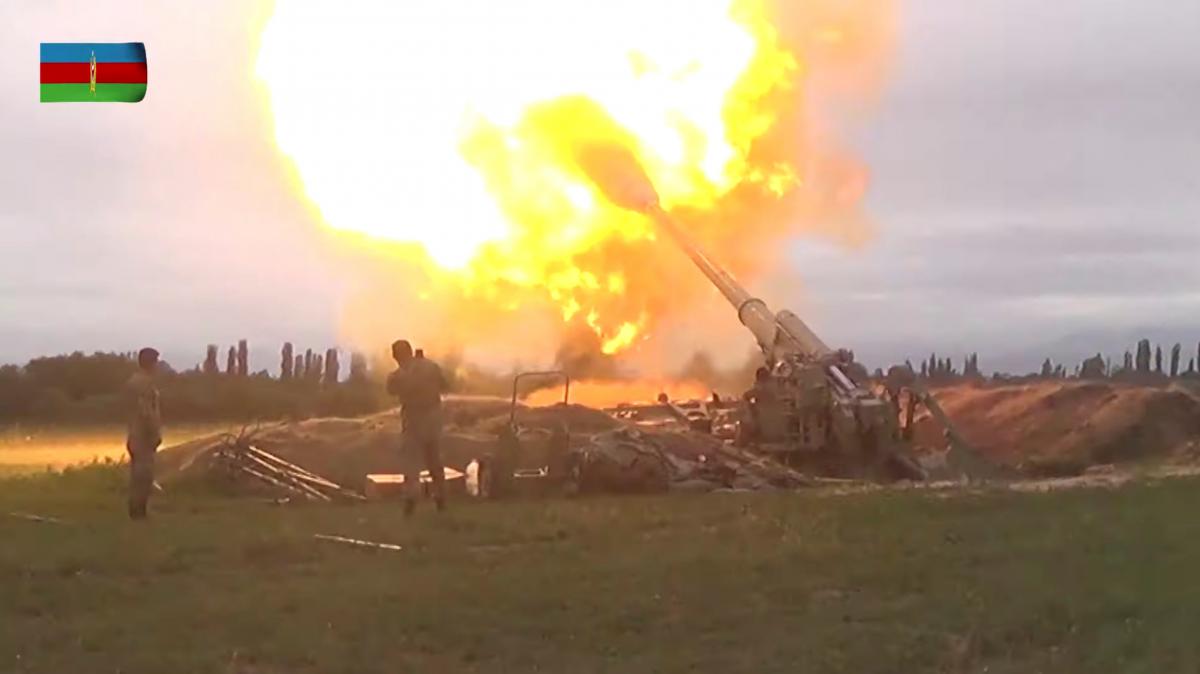
A joint statement released by the U.S., Armenian and Azerbaijani governments on Sunday said the "humanitarian ceasefire" would begin in Nagorno-Karabakh at 08:00 local time on Monday.
The statement came following discussions involving U.S. Deputy Secretary of State Stephen Biegun, Armenian Foreign Minister Zohrab Mnatsakanyan, and Azerbaijan's top diplomat Jeyhun Bayramov, according to the BBC.
On Friday, both foreign ministers met with U.S. Secretary of State Mike Pompeo in Washington.
U.S. President Donald Trump tweeted on Sunday to congratulate those involved.
Congratulations to Armenian Prime Minister Nikol Pashinyan and Azerbaijani President Ilham Aliyev, who just agreed to adhere to a cease fire effective at midnight. Many lives will be saved. Proud of my team @SecPompeo & Steve Biegun & @WHNSC for getting the deal done!
— Donald J. Trump (@realDonaldTrump) October 25, 2020
"The United States facilitated intensive negotiations among the Foreign Ministers and the Minsk Group Co-Chairs to move Armenia and Azerbaijan closer to a peaceful resolution of the Nagorno-Karabakh conflict," the U.S. Department of State said in a statement.
Two earlier ceasefires brokered by Russia have failed to hold. The president of Azerbaijan, Ilham Aliyev, has also warned Russia not to get involved militarily in the conflict.
However, on the morning of Monday, October 26, both Armenia and Azerbaijan traded accusations of a truce breach.
The Azerbaijani defense ministry claimed Armenia violated the latest ceasefire agreement in the conflict zone, Echo Kavkaza reports.
The Armenian armed forces opened fire on the city of Terter and the villages within the district, the report said.
In turn, Press Secretary of the Armenian defense ministry Shushan Stepanyan said that "the Azerbaijani side, grossly violating the humanitarian ceasefire agreement reached in the United States, fired its artillery in the direction of the northeastern combat positions of Karabakh."
Nagorno-Karabakh conflict: Background
- On September 27, fighting resumed between Armenia and Azerbaijan in the disputed Nagorno-Karabakh region. Both countries blamed each other for shelling as a result of which they suffered casualties.
- Armenia and the unrecognized Nagorno-Karabakh Republic declared martial law and general mobilization.
- Azerbaijan, in turn, introduced martial law on September 28. Partial mobilization was announced in that country.
- Ukrainian Foreign Minister Dmytro Kuleba has said Ukraine consistently supports the territorial integrity of Azerbaijan.
- The UN Security Council has called on Armenia and Azerbaijan to immediately stop fighting.
Nagorno-Karabakh war: History
The conflict between Azerbaijan and Armenia over the Nagorno-Karabakh region began in 1988, when the predominantly Armenian-populated Nagorno-Karabakh Autonomous Oblast announced its withdrawal from the Azerbaijan Soviet Socialist Republic.
In 1991-1994, the bloodshed conflict continued in the region, which ended with the signing of a ceasefire protocol. Nagorno-Karabakh proclaimed itself an independent "republic." Azerbaijan did not recognize this, considering the territory to have been occupied by Armenia.

